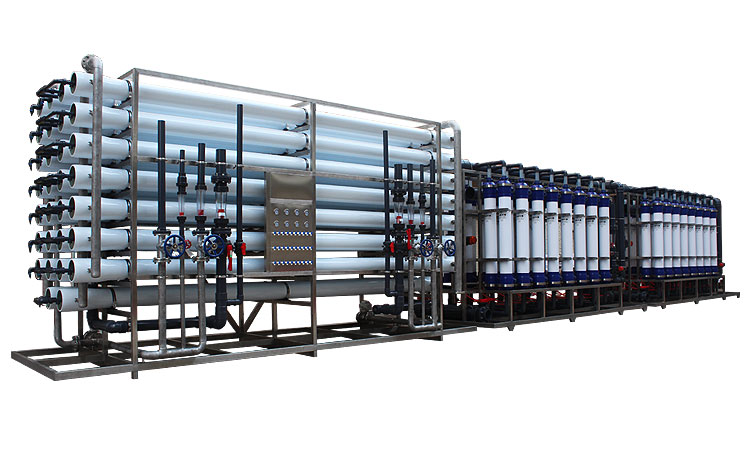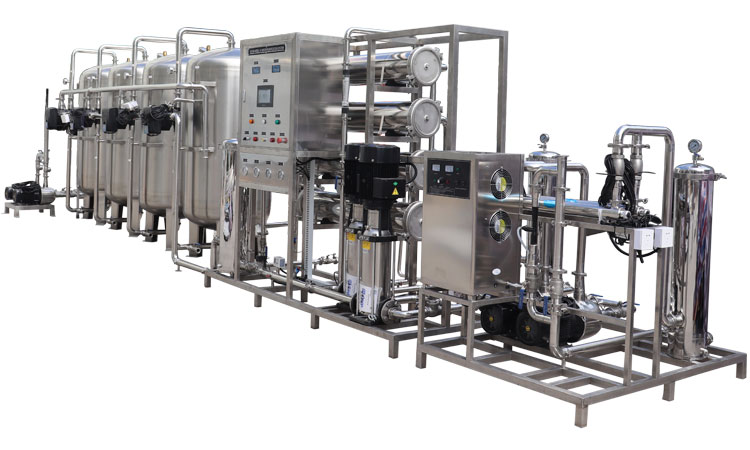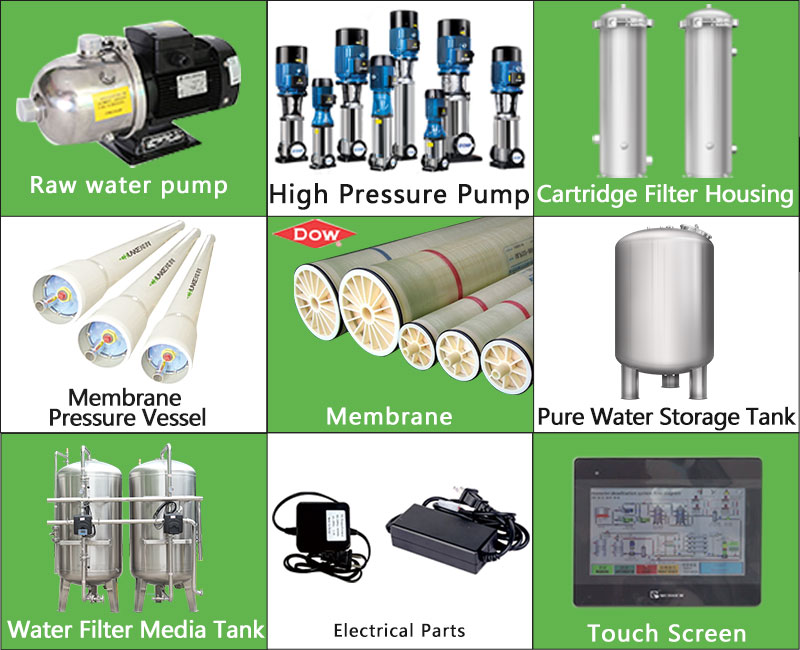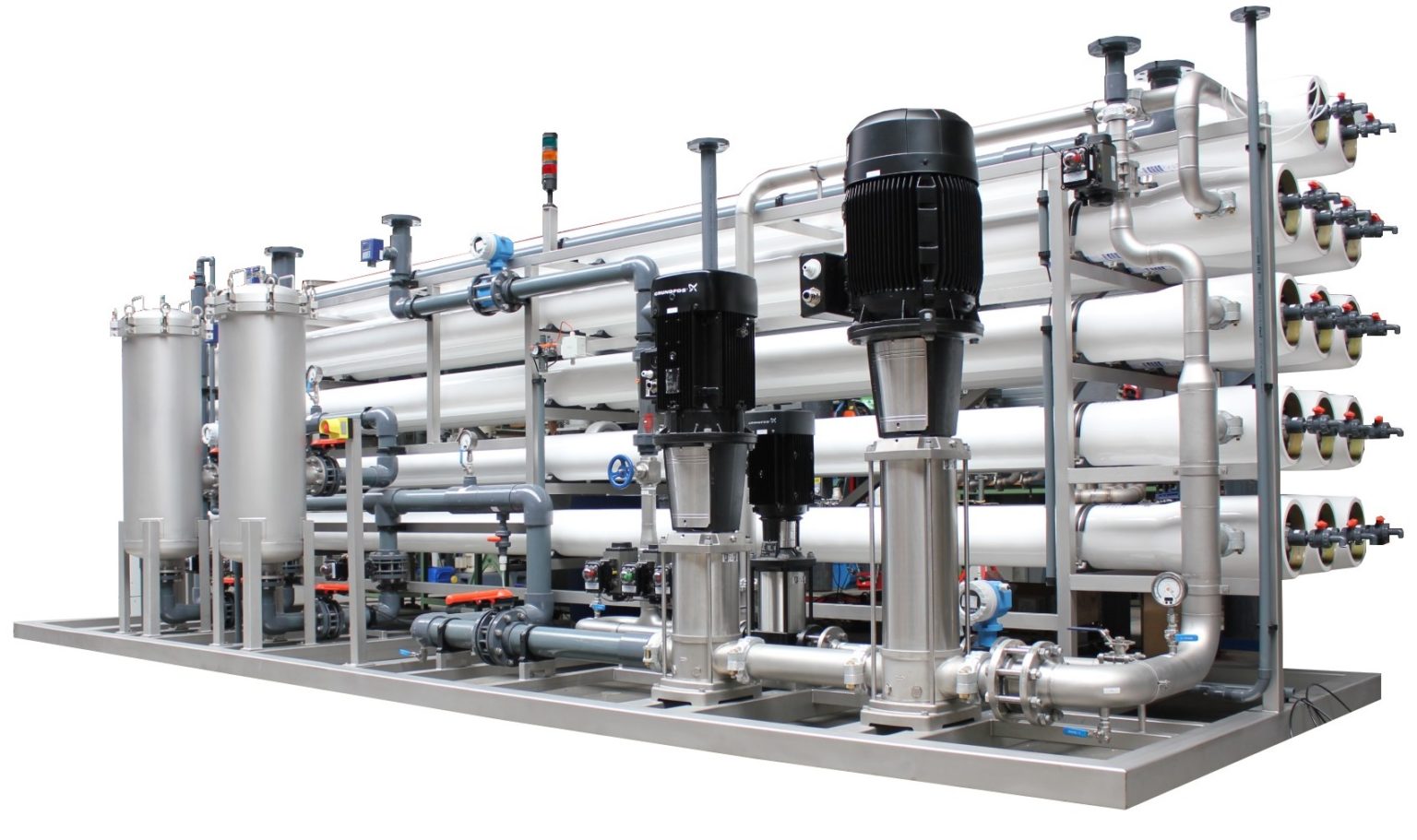Is reverse osmosis a good way to purify water?
The reverse osmosis water purification system is widely regarded as a highly effective method of purifying water, especially for providing clean, filtered drinking water in the home environment. Below we will discuss in detail whether reverse osmosis is a good way to purify water from several aspects.
Advantages of reverse osmosis water purification system
The biggest advantage of the reverse osmosis water purification system is its efficient filtration capability. Through the microporous structure of the reverse osmosis membrane, the reverse osmosis system can effectively remove various impurities and pollutants in the water, including heavy metals, organic matter, bacteria, etc., ensuring the purity and safety of the water. In addition, the reverse osmosis system is small enough to be installed under the sink or in the kitchen cabinet, without taking up too much space, making it convenient for home use.
Scope of application of reverse osmosis water purification system
reverse osmosis water purification system is suitable for a variety of occasions, including homes, offices, commercial places, etc. In the home environment, the reverse osmosis system can provide safe and clean drinking water for the family and protect family health. In offices and commercial spaces, reverse osmosis systems can meet the needs of employees and customers for high-quality drinking water, improving work efficiency and service quality.
Considerations for reverse osmosis water purification system
Despite the many advantages of reverse osmosis water purification systems, there are still some factors to consider during purchase and use. The first is the issue of cost. The purchase and installation costs of a reverse osmosis system are relatively high and require a certain amount of investment. Secondly, there is the issue of maintenance and upkeep. The cleaning and replacement of reverse osmosis membranes require certain technical and cost support. In addition, the operating efficiency and stability of the reverse osmosis system also need to be considered. It is crucial to choose products and manufacturers with good reputation and reliable quality.

What are the advantages of reverse osmosis systems over other water purification methods?
High efficiency filtration capability
Reverse osmosis systems have more efficient filtration capabilities than other water purification methods. The microporous structure of the reverse osmosis membrane can effectively remove various pollutants and impurities in the water, ensuring the purity and safety of the water. However, traditional water purification methods such as filters and purification tablets may not be able to completely remove tiny particles and organic matter in the water.
Wide range of applications
Reverse osmosis systems have a wide range of applications and can meet the water purification needs of homes, businesses, and industries. Whether it is household drinking water, office water supply or industrial production water, reverse osmosis systems can provide high-quality purified water sources to meet the requirements of different scenarios.
Easy to install and use
The reverse osmosis system is easy to install and does not take up too much space. It can be flexibly installed in the kitchen cabinet at home or under the sink in the office. At the same time, the reverse osmosis system does not require manual operation and can run automatically once installed, providing users with convenient and fast water purification services.

What issues need to be paid attention to when installing and maintaining a reverse osmosis system?
After understanding the advantages of reverse osmosis systems, people may be concerned about the installation and maintenance of reverse osmosis systems. After all, the normal operation and long-term use of a good reverse osmosis system requires reasonable installation and timely maintenance.
First, the installation of a reverse osmosis system needs to take into account factors such as water source and water demand. Before installation, it is necessary to test the water quality, determine the working parameters of the system, and select appropriate reverse osmosis equipment. In addition, details such as the installation location and pipe connections of the equipment need to be considered to ensure a stable and reliable installation.Secondly, the maintenance of the reverse osmosis system is also crucial. Regular replacement of filter elements, cleaning of pipelines, and inspection of key components such as valves and pumps can ensure the normal operation and purification effect of the system. At the same time, pay attention to regular cleaning and disinfection of water tanks to prevent the growth of bacteria and contaminants and ensure the safety of drinking water.

In addition to reverse osmosis systems, what are other ways to purify water?
1. Water filter jug and filter
In addition to reverse osmosis systems, water filter jugs and cartridge filters are a simple yet effective way to purify water. They remove impurities and contaminants from water through physical filtration or adsorption, providing clean drinking water.
2. UV disinfection
Ultraviolet disinfection is a commonly used water treatment technology that uses ultraviolet rays to kill bacteria, viruses and other microorganisms in the water to ensure water quality safety.
3. Activated carbon filtration
Activated carbon filtration is a common water treatment method that uses activated carbon to absorb organic substances and odors in the water to improve the taste and quality of the water.
4. Chemical treatment
Chemical treatment is a method that targets specific water quality issues and includes adjusting the pH of the water, adding disinfectants and flocculants, etc., to improve the quality and suitability of the water.

Reverse osmosis systems are widely used as an effective water purification method that can provide clean, filtered drinking water. However, reverse osmosis systems also have certain advantages and disadvantages, and they need to be selected and applied based on actual conditions.
In addition to reverse osmosis systems, there are various methods of purifying water such as water filtration kettles, ultraviolet disinfection, activated carbon filtration, and chemical treatment. You can choose the appropriate purification method according to different needs and water quality characteristics to ensure the safety and quality of drinking water.




